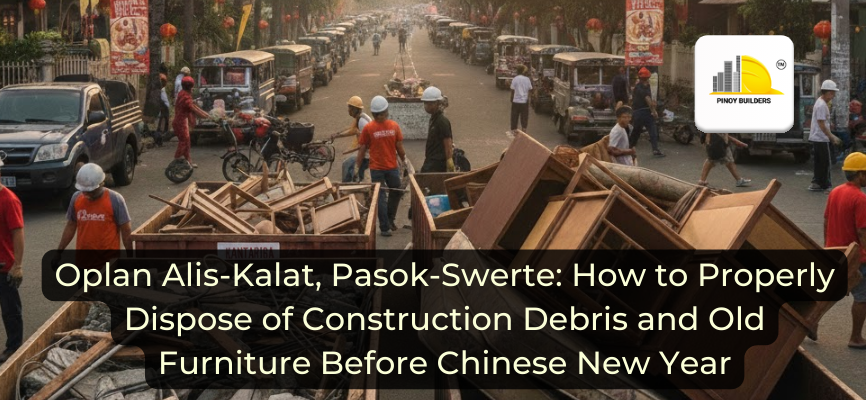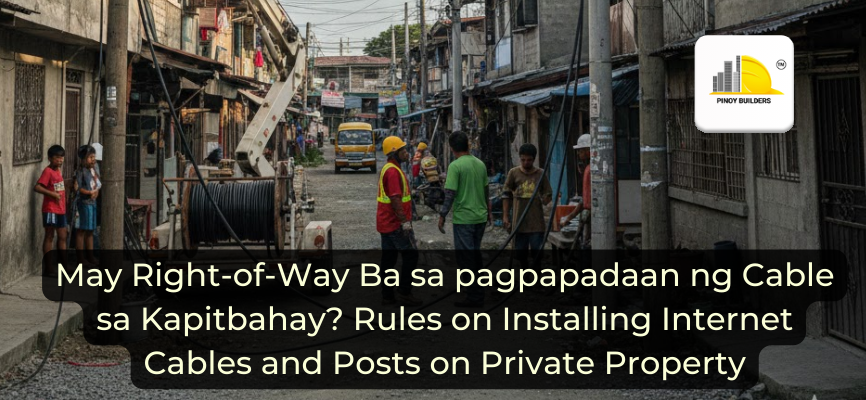In the Philippines, the construction industry has long been a very important pillar that has supported and maintained the growth and strength of the local economy. As an industry, construction is an integral one, as it has established itself as a significant force for local infrastructure development, employment generation, and even in the transformation of the country as a viable investment destination for both local and international business entities. As an integral part of the Philippine economy, the implementation of safety and quality regulations as brought into play by the government is necessitated.

Image from Steel Innovations Philippines
The Philippine Congress established PCAB, also known as Philippine Contractors Accreditation Board, in 1965 to control and improve local construction operations and the quality of its infrastructures. PCAB, previously known as PLBC (Philippine License Board for Contractors) was formed by RA 4566 for the country to have a license-granting body that can monitor and restrict construction businesses that do not comply with the quality standards of the Philippines. To begin legal operations, construction businesses must acquire a PCAB license to proceed.
Are Philippine Contractors Accreditation Board Applications Declining?
PCAB license applications fluctuate year after year to the financial feasibility of the local construction industry. These applications can translate into hundreds of millions of income generated by the local construction industry that is both influenced by the economy and is influencing the income of the country. In recent years, government administrations have been admittedly keen on improving multiple infrastructures, not only for bolstering local GDP but to also improve the standard of living of the Filipino people. This can be seen in both former president Rodrigo Duterte’s Build, Build, Build program and current president Ferdinand Marcos Jr.’s Build, Better, More infrastructure program.
The amount of PCAB applications varies year by year. In 2022, the Philippine Contractors Accreditation Board released a report of their performance at a glance. According to this report, 51,517 applications were processed by the board for that year, not including applications that were void or rejected, and businesses that were unqualified to be granted the PCAB license.

Image from malaya.com.ph
For the year 2022, the construction industry licensing authority processed 21,296 regular licenses from 16,298 regular licensed contractors. On the other hand, special licenses processed by PCAB for the same year were 4,541, of which 4,058 were granted to special licensed contractors. While no solid reports disclosed the actual numbers of PCAB applications for the years prior to 2022, PCAB reported that law mandated 15,000+ contractors to renew their licenses on June 30 of the year 2020. The local government authorities insisted this requirement on, having launched the PCAB online licensing portal to accommodate construction businesses even during the height of the pandemic while most of the population was in quarantine.
For the year 2023, reports on the number of applications are not yet available, but the list of registered contractors with valid PCAB licenses as of July 2023 is available online at the Department of Public Works and Highway (DPWH) website.
The Future Of The Local Construction Industry With PCAB
With PCAB, the construction industry continues to thrive and sustain a quality of output that is certainly beneficial to the development of the country’s economy. The number of PCAB license applications fluctuates year by year and is affected by the economic and societal status of the country at the moment. In 2020, PCAB made sure that at least 15,000+ contractors kept their licenses to ensure that the quality of their work is still monitored and followed the proper standards. With PCAB, the future of the local construction industry is poised to grow.
References:
- Benjamin, A. (2023, January 16) http://construction.gov.ph/implementing-boards/. Retrieved July 28, 2023, from https://construction.gov.ph/implementing-boards/
- Construction Industry Authority of the Philippines. (n.d.). You are here: Online PCAB New Regular License application | Instructional Video. Construction Industry Authority of the Philippines. Retrieved July 28, 2023, from http://construction.gov.ph/video_gallery/online-pcab-new-regular-license-application-instructional-video/
- DPWH. (n.d.). List of Registered Contractors with valid PCAB License as of July 20, 2023 | Department of Public Works and Highways. DPWH. Retrieved July 28, 2023, from https://www.dpwh.gov.ph/dpwh/business/procurement/civil_works/registered_contractors?text=All
- PHILIPPINE CONTRACTORS ACCREDITATION BOARD. (2023, February 14). PHILIPPINE CONTRACTORS ACCREDITATION BOARD. Construction Industry Authority of the Philippines. Retrieved July 28, 2023, from http://construction.gov.ph/wp-content/uploads/2023/02/PCAB-ANNUAL-REPORT-2022.pdf










